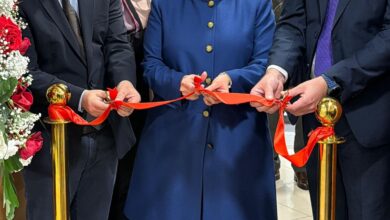Kuwait working on reforming tax system

A recent economic report said that Kuwait is currently working on reforming its tax system with the aim of meeting global tax standards and reducing dependence on oil revenues, explaining that at the same time, the country has signed a double tax treaty with the UAE, which is the first of its kind with another Gulf country.
The report, published by Arabian Gulf Business Insight, and reported by Al Qabas the Arabic daily, quoted Rami Al-Hadrami, a partner in tax and regulatory services at BDO Accounting and Consulting in Kuwait, that the Kuwaiti government is working on several initiatives to reduce its budget deficit, through several solutions, including increasing tax revenues.
He added that the tax treaty with the UAE came in time to prevent or reduce double taxation between the two countries. Such treaties provide tax clarity and predictability, which can help boost investments.
Corporate tax
While Kuwait imposes a 15% tax on business income, in practice this tax is often applied to non-Gulf foreign companies and non-Gulf foreign shareholders, however, Al-Hadrami pointed out that the tax on corporate profits will now be applied to all companies.
The report pointed out that the DLA Piper Law Office had described in a memorandum to its customers that the corporate profit tax constitutes a major transformation for Kuwait, and a step towards a fairer tax establishment, where companies will contribute more to government revenues.
Exchange of Information
Tim Dubmer, senior manager at Alvarez & Marsal Consulting, said that the UAE’s efforts to conclude double tax treaties with other Gulf countries helps form better economic conditions for doing business in the region.
In turn, a spokesman for the Middle East tax consultancy Orever said that the treaty signed between the UAE and Kuwait regulates the exchange of information between the two authorities and their international counterparts to combat tax evasion and promote tax justice.
Al-Hadrami stated that Kuwait did not previously impose specific sanctions on financial institutions that failed to obtain self-certifications from customers, nor did it impose sanctions on customers who provided inaccurate information, noting that the value-added tax is not expected to be approved in Kuwait during the next one or two years.
Priority for “value added”
The DLA Piper office stated that Kuwait’s decision to prioritize VAT tax on selective goods is in line with its economic and financial policy objectives, explaining that this strategic choice reflects a preference for a simpler and more targeted tax system.
It directly addresses health and environmental concerns, providing immediate financial revenues with less administrative complexity and a wider general acceptance of VAT.
The tax system requires large investments
Al-Hadrami said that the shift in the tax system requires a significant investment in IT infrastructure and resources from tax authorities, which requires more time to approve and implement it on the ground.











